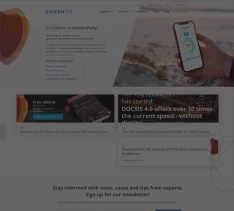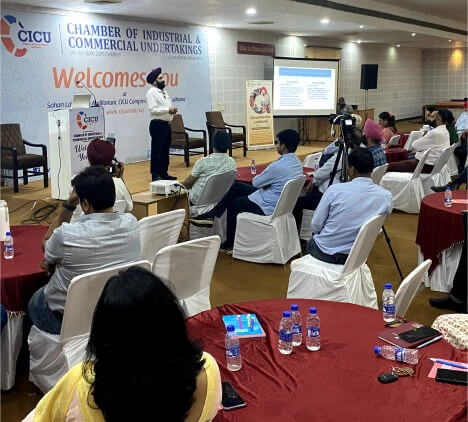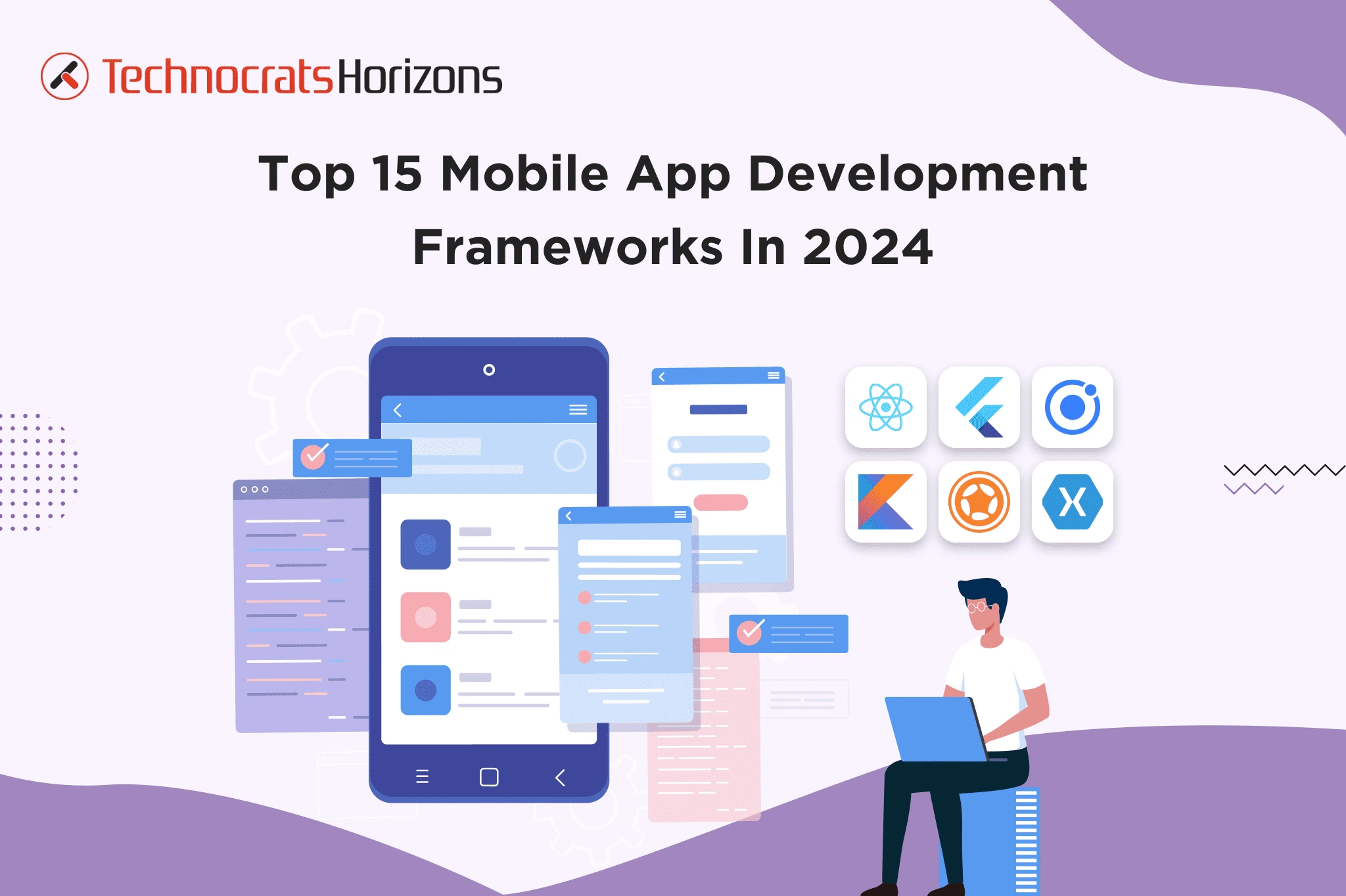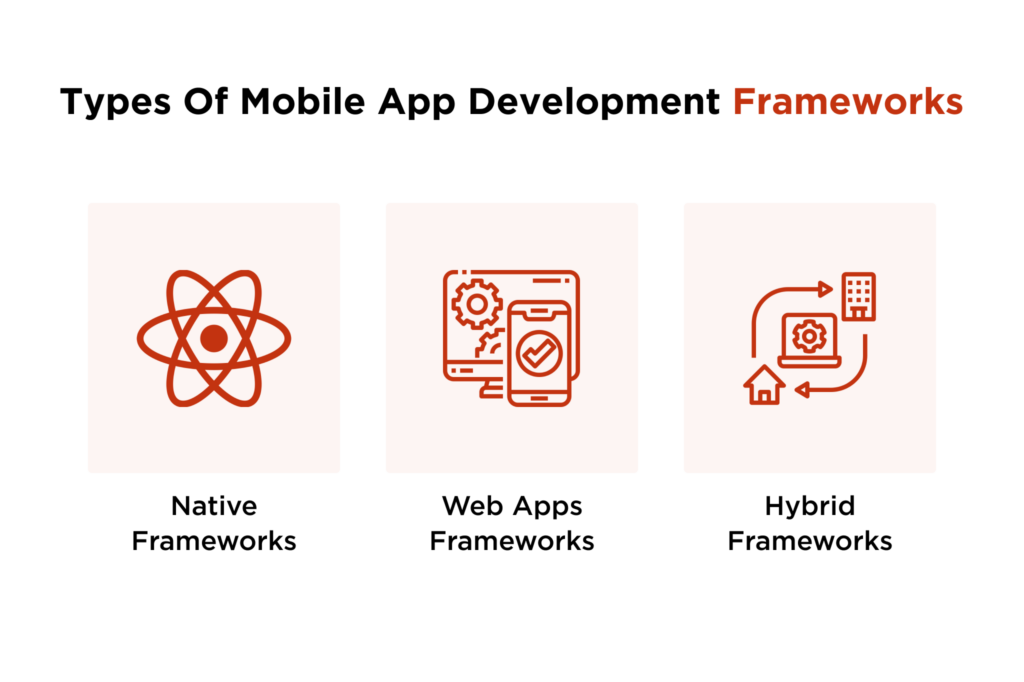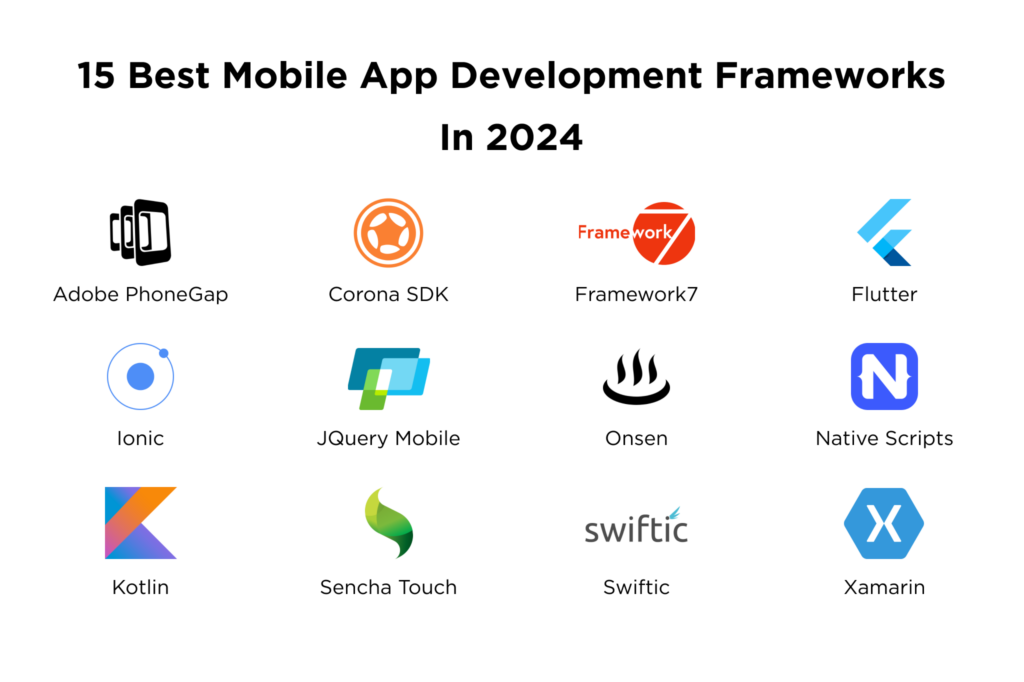With the increasing adaptability of smartphones and mobile applications, businesses must also build mobile apps to embark on online success. There were days when app development frameworks used to be limited in number.
Moreover, they used to have a limited number of functionalities. And that’s why businesses would easily choose the most suitable framework for app development.
However, in today’s digital era, there are innumerable iOS and Android app development frameworks, which makes it challenging for businesses to choose the right one. Moreover, every framework has something different to offer, making the decision-making even tougher. But today, you will get rid of all such confusion through this blog.
Today, this blog will let you explore the top 15 mobile app development frameworks in 2024. You will also learn about the types of mobile app development and key factors to consider when choosing the right app development framework.
Types of Mobile App Development Frameworks
The type of mobile app development plays a crucial role in deciding the app’s performance, compatibility across different devices, and user experience. That’s why it becomes necessary for you to know the type of frameworks before delving into the list of best Android app development frameworks.
The right app development framework helps you enhance the app performance and user experience. So, let’s look at the three types of mobile app development frameworks, namely, native, cross-platform, hybrid, and Progressive Web App (PWA) development frameworks.
Native Frameworks
The native frameworks are specifically meant for a single mobile platform, either iOS or Android. Mobile applications developed using native frameworks deliver good user experience, high performance, and seamless integration with numerous devices.
That’s why native frameworks are best suited to create high-processing mobile applications related to gaming and AR/VR technologies. So, when you need to build high-processing mobile applications, opting for native frameworks becomes the perfect option.
Cross-Platform Frameworks
As the name indicates, cross-platform frameworks are used to build applications compatible with multiple platforms with a single codebase. These frameworks build applications with the help of languages like JavaScript, C#, or Dart. Cross-platform frameworks have achieved extensive popularity in the last few decades.
The reason behind it is its affordability, which allows the use of a single code on varied mobile platforms. The mobile apps built using cross-platform frameworks are easy to deploy and maintain.
That’s why cross-platform frameworks are used to build eCommerce applications that are needed for both platforms.
Hybrid Frameworks
You might know what hybrid frameworks are all about from the name itself. These frameworks are used to build mobile apps that function like native apps but are built as web applications. So hybrid apps become accessible on both web browsers and mobile platforms, thus delivering a consistent look and feel on all platforms.
Hybrid frameworks use web technologies like HTML, Javascript, and CSS combined with a native shell to provide a consistent user experience across all platforms. Hybrid apps are quick and easy to develop. However, you might not get performance issues as they cannot give high performance like native or cross-platform apps.
So, hybrid frameworks have become an excellent choice for simple mobile apps or MVPs that do not require heavy processing.
15 Best Mobile App Development Frameworks in 2024
A few frameworks were available a few decades ago, which limited mobile apps in terms of functionalities and user experience. But today, we have numerous app development frameworks that can help your business succeed with enhanced user experience and performance.
However, choosing the best mobile app development framework depends on your app development requirements. Consulting with an experienced mobile application development company can help you get the perfect solution for your app development needs. Here are the 15 most popular frameworks for Android app development.
React Native
With its largest community of over 2,000 active contributors on Github, React Native has become the most popular framework for app development. The popular framework was launched by Meta (formerly known as Facebook) in 2015. Since its launch, the framework has had a large fanbase among the app developer community because of its ability to build cross-platform applications.
You might wonder what makes React Native so popular among the app developer community. It’s because of the blend of Javascript and React it has. This combination allows developers to create mobile apps that look and feel like
That’s why popular mobile apps like Instagram, Airbnb, and Skype are built using React Native and are enduring their success to date through their user-friendly design and high performance. So, if you wish to develop cross-platform applications with high-end functionalities, React Native becomes the perfect platform to start from.
Flutter
The second most popular framework for cross-platform application development is Flutter. Introduced by Google, Flutter has become one of the leading mobile app development frameworks.
According to a survey by Stack Overflow 2023, around 42% of app developers prefer Flutter over any other frameworks after React Native. The reason behind such a huge fanbase is the efficient and high-performing mobile apps that Flutter produces.
The famous framework uses Dart programming language, allowing fast and efficient mobile apps to be built quickly.
Moreover, its “hot reload” option allows developers to track changes in real-time without repeatedly restarting the application. This helps developers to build the application in less time but in a more efficient way. Applications like Alibaba and Google Ads are built using Flutter.
Xamarin
Microsoft launched the Xamarin framework to build native mobile apps using C#. It is integrated with Microsft Visual Studio and Azure cloud services, making it suitable for building highly scalable and secure enterprise applications.
The most popular examples of mobile apps built using Xamarin are UPS and Alaska Airlines mobile apps. Besides, Xamarin allows developers to share 90% of code across multiple platforms like iOS, Android, and Windows, eliminating the need to craft code for different platforms. This proves to be a time-efficient process for developers. Moreover, it also helps reduce the app development costs to some extent.
So, if you need to build large-scale enterprise applications, Xamarin becomes the perfect app development framework to opt for.
SwiftUI
When you desire to build an application solely for the iOS platform, the SwiftUI framework becomes your go-to choice. The iOS app development framework offers declarative syntax that allows developers to build apps with intuitive user interfaces. Besides, its “real-time preview” feature will enable developers to preview design changes instantly, reducing development time.
Furthermore, with its integration with Apple’s hardware, SwiftUI allows complete access to Apple’s latest features, thus making your iOS app stand out from the crowd through modernization. Because of such unique features and functionalities, SwiftUI has become the favorite iOS framework among iOS developers.
Ionic
Ionic has become the preferred choice among developers when transitioning from web to mobile app. This framework uses basic programming languages like HTML, CSS, and Javascript, making it suitable for building responsive and visually stunning mobile apps. Besides, the famous framework uses Capacitor plugins that allow it to access all native features with ease.
The best part about Ionic is its seamless compatibility with other frameworks like React, Vue, and Angular. This makes it easy for developers familiar with frameworks to use Ionic easily. Because of its fast app development and deployment abilities, Ionic has become a perfect choice for building PWAs (Progressive Web Apps) and for numerous industries like retail and healthcare, which need to operate applications on mobile and browser platforms.
Apache Cordova (PhoneGap)
Formerly popular as PhoneGap, Apache Cordova is the leading hybrid app development framework that allows developers to create mobile apps using web technologies and embed features like camera, GPS, and storage using its versatile plugin library.
However, Cordova is highly recommended for building smaller web or mobile apps. The reason behind it is Cordova is solely meant for mobile apps needing lightweight features and functionalities. However, its affordability and amazing plugins make it a better option for businesses thinking of transitioning from web to mobile apps.
NativeScript
What if the app development framework gives you complete access to native APIs? NativeSript, one of the latest Android app development frameworks, makes it possible. This framework is open-source and provides access to its native APIs. This feature allows developers to embed native features without relying on platform-specific languages. Due to its unique feature,
NativeScript has become the first choice among developers for building device-specific applications like sensors. Moreover, for industries like finance, where accessing device hardware is an everyday necessity, the NativeScript framework becomes the perfect choice for easily building device-specific apps.
jQuery Mobile
When you need to create a web app with minimum functionalities and in less time, jQuery Mobile becomes the perfect framework to opt for. jQuery Mobile is built using the jQuery library, especially for building responsive web apps with basic functionalities.
Although the framework contains limited features, it is very popular among developers who want to build small, responsive web applications in less time.
Sencha Ext JS
Applications for industries like finance and healthcare have large collections of data. That’s why such industries need applications that can easily process such large amounts of data.
Sencha Ext JS becomes the most appropriate framework for creating enterprise applications with interactive user interfaces and heavy data processing. With an extensive library of around 140 UI components, the Sencha Ext JS framework is perfect for designing interactive mobile applications requiring advanced data management, like dashboards and management portals.
Onsen UI
While creating cross-platform mobile apps, developers often face the challenge of delivering consistent user experience across multiple platforms. Onsen UI becomes a powerful framework that helps developers build cross-platform applications with consistent user experience across various devices.
The powerful framework offers a collection of pre-built UI components that help developers create intuitive mobile applications easily. Onsen UI also provides compatibility with frameworks like React, Angular, and Vue.js, making it easier for app developers to adapt. So, Onsen UI becomes the perfect app development framework when your app needs a highly interactive and captivating interface design.
Appcelerator Titanium
After the NativeScript framework, Appcelerator Titanium becomes another app development framework that allows direct access to device hardware features without exploring platform-specific languages. This is because the framework offers an extensive API library connecting to device-specific features.
The API library helps developers easily create applications that need advanced customization and interactive interface. Moreover, because of this amazing feature of the Appcelerator framework, it has gained a lot of popularity among app developers. The extensive fanbase is why around 72,000 mobile apps have been developed using the Appcelerator Titanium framework.
Unity 3D
When creating gaming applications, Unity 3D leads the gaming industry through its high-performance graphics and AR/VR features support. The leading gaming framework has made 50% of the gaming applications available across the globe to date.
What makes Unity 3D unique from other gaming frameworks is its ability to create gaming applications with a consistent look and feel across multiple devices, including mobile, desktops, and consoles. Due to such unique skills, Unity has become the perfect choice for gaming applications in the education and training industry, where interactive elements have become necessary for engaging learners for a long time.
Qt
Some industries, like automotive, need mobile applications with powerful processing and interactive interfaces. In such scenarios, Qt becomes the perfect framework to choose. Qt is built using the famous programming language C++, which is why it is suitable for advanced data processing.
Moreover, Qt offers a huge library of high-end features, including 3D graphics and complex UIs that make it perfect for building mobile apps with custom graphics with ease.
Kivy
When discussing the best frameworks for mobile app development, we should not forget to mention Kivy on the list. Its ability to create multi-touch applications makes Kivy stand out from the other frameworks. That’s why it has become perfect for developing mobile apps related to industries like education and prototyping.
Kivy offers a large suite of flexible UI components, making it most suitable for customizing customized mobile applications. However, it might be limited in terms of other features compared to the different frameworks.
Corona SDK (Solar2D)
Gaming mobile applications have two necessities – high performance and amazing graphics. For 2D game app development, Solar2D, formerly known as the Corona SDK framework, becomes the ultimate framework.
Solar2D framework is embedded with a built-in physics engine supporting complex animation, allowing it to easily create mesmerizing gaming applications. Moreover, Solar2D’s real-time simulation allows instant testing and debugging, thus streamlining the development process. That’s why it is everlastingly popular in 2D gaming development.
How to Choose the Right Framework for Mobile App Development
Now that you have explored the best Android and iOS app development frameworks, you might be wondering which framework will be best suited for your app development needs. In such a scenario, although consulting with an app development frameworks agency could help you a lot, we have listed the key factors you should consider while choosing the framework.
Complexity of the Application
While choosing a framework, the first thing you should consider is the complexity of your application.
If you need to embed advanced functionalities like a camera and push notifications in your application, frameworks like React Native and Flutter can become the perfect options. Meanwhile, frameworks like Ionic or Apache Cordova are better for lightweight applications with basic features.
App Performance Requirements
App performance is the foremost priority for some mobile applications like gaming or enterprise applications. Frameworks like React Native, Flutter, and Unity 3D have become useful in creating high-performance apps. Other frameworks can work for lightweight mobile apps. However, app performance plays a huge role in its success.
Tonic, the famous eLearning mobile, constantly lost its learners because of its low performance and poor user interface. Technocrats Horizons, the app frameworks development company, used React Native to create an interactive and engaging mobile app. The application’s captivating design and smooth interface helped Tonic boost its student base instantly.
Budget and Timeline
The cost of app development framework services depends on the time taken in the development process. That’s why app development would cost lots of money a few decades back.
However, today, we have numerous frameworks like Flutter, Xamarin, SwiftUI, and React that allow you to streamline the development process efficiently, thus reducing the overall development cost. So, when budget is your constraint, you should opt for frameworks that could help you get your app cost-efficiently.
The expertise of the Team
The expertise of the mobile application development company plays a huge role in having a high-performing and engaging mobile app. So, you should always opt for app framework development services that help your business stand out through an engaging mobile app.
Technocrats Horizons is well-known in India and USA for its custom mobile app development services. With our 13+ years of expertise, we have helped numerous businesses to thrive and succeed in the digital landscape.
One such business was Shine and Drive, an existing platform for car wash memberships in the USA, which needed to enhance its mobile app performance. Our solutions helped our partner company streamline their onboarding process and improved the app performance, which helped them boost their memberships on the go.
Final Thoughts
Today, you might have a complete breakdown of the latest iOS and Android app development frameworks. However, the success of your app development depends a lot on your chosen framework. That’s why choosing the right framework is very essential.
To choose the right framework, you should consider some essential factors like app complexity and performance, team expertise, budget, and timeline. By considering all these factors, you can easily choose the right app development framework.
Technocrats Horizons is well-known for its custom mobile app development for startups and SMBs. Affordability does not mean compromising quality. Rather, our custom mobile app development services allow businesses of all sizes to have lasting success in the digital space.
If you are looking for the best mobile app development framework for your mobile app, book a free consultation with us.
We turn ideas into successful apps!
Let us guide you through the custom mobile app development journey and how your idea can be turned into something successful.


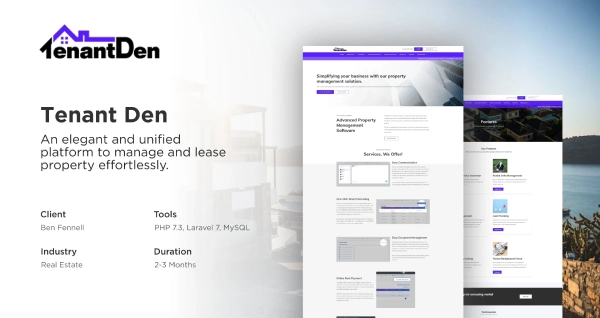

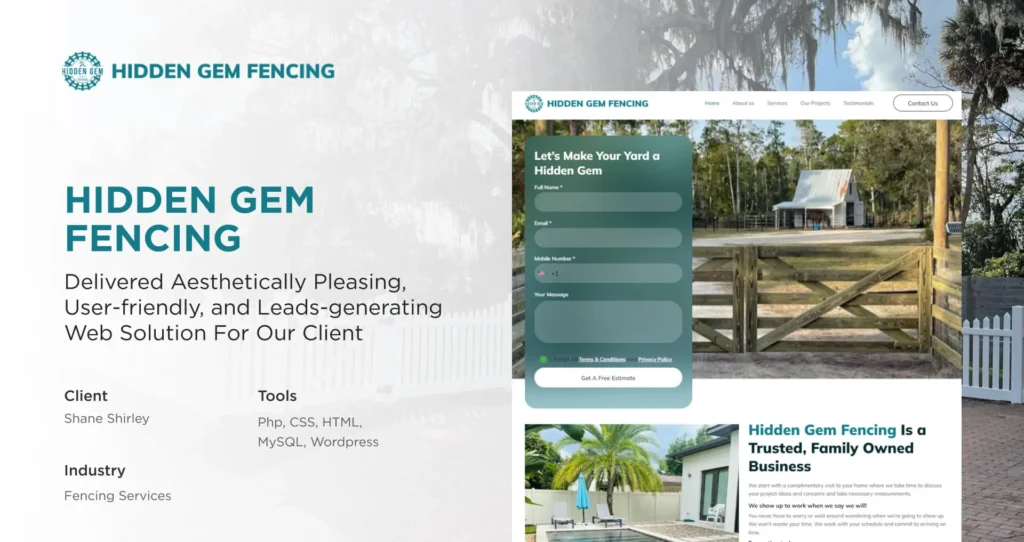




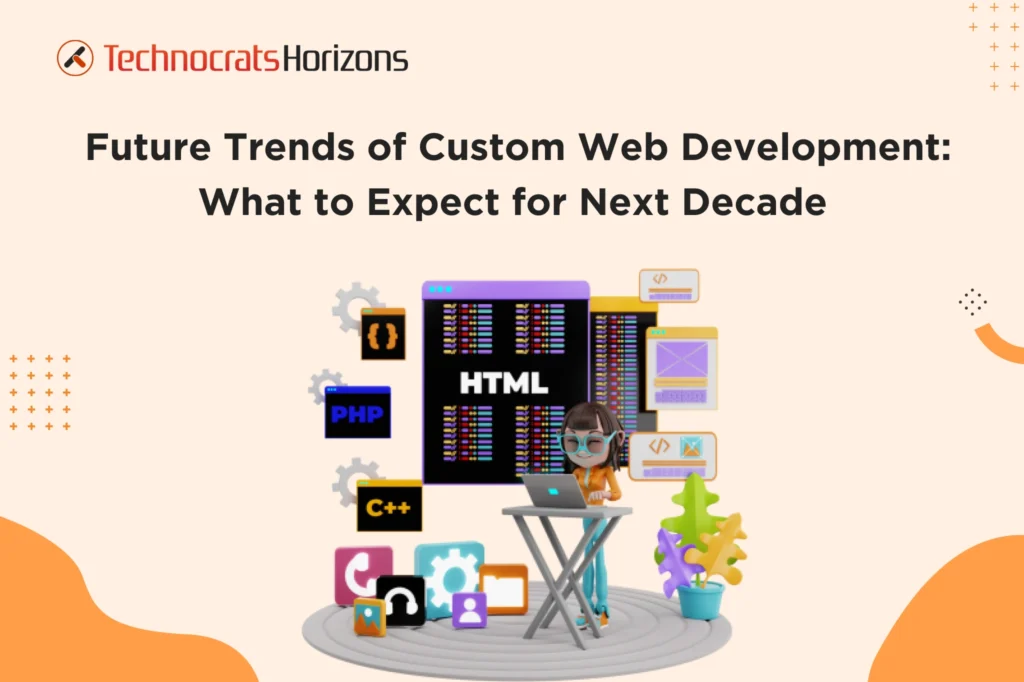

 Request a
Request a













